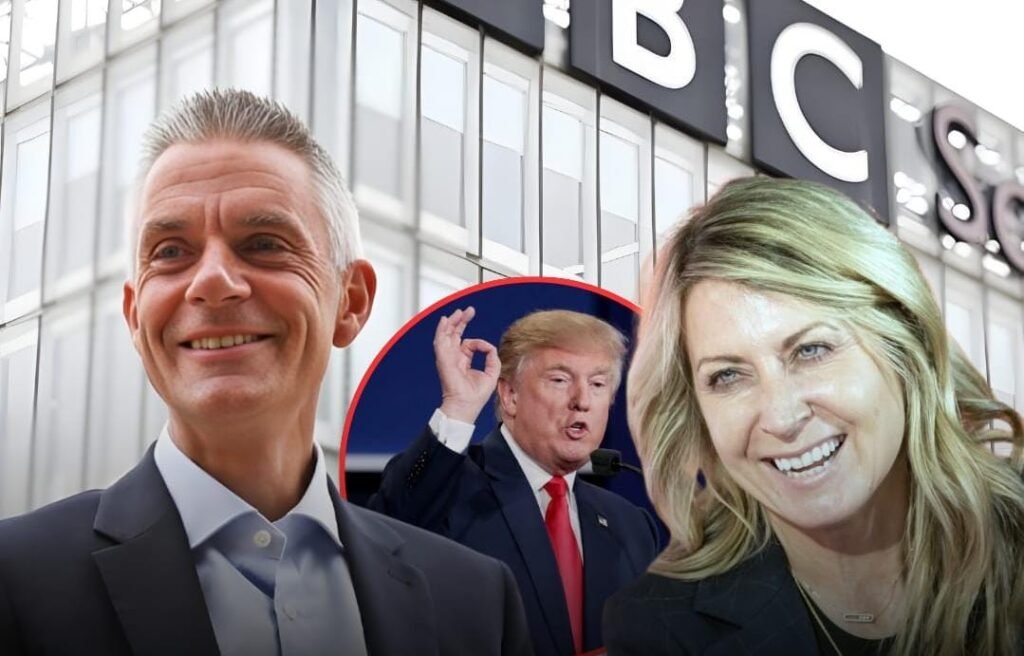Two top BBC leaders resigned after revelations that a Trump speech was misleadingly edited, sparking accusations of bias and drawing sharp criticism from President Trump, who called the scandal “a disgrace for democracy.”
By Imran Malik | MediaBites | November 10, 2025
WEBDESK — The BBC has been plunged into one of its worst credibility crises in decades as two of its top executives — Director General Tim Davie and News Chief Deborah Turness — resigned on Sunday following revelations that a Trump speech was misleadingly edited in a BBC documentary.
The scandal erupted after the Telegraph published a leaked internal memo by media adviser Michael Prescott, revealing that the BBC’s Panorama team had broadcast a “doctored” clip of former U.S. President Donald Trump’s January 6, 2021, address. The edit falsely made it appear as though Trump directly incited violence during the Capitol riots.
In his resignation note, Davie said he took “ultimate responsibility” for the BBC’s failures, while Turness admitted that the controversy had reached a point where it was “damaging the institution I love.” Both departures come amid fierce public backlash and political scrutiny over the broadcaster’s neutrality and editorial ethics.
Trump celebrated the resignations, thanking the Telegraph for “exposing corruption” and labeling the BBC “a propaganda machine.” His son, Donald Trump Jr., called the incident proof that “fake news isn’t just an American problem.”
White House Press Secretary Karoline Leavitt joined the criticism, calling the BBC “100% fake news” and accusing it of “pushing leftist propaganda funded by British taxpayers.”
British officials reacted cautiously. Culture Secretary Lisa Nandy acknowledged Davie’s contributions but stressed that “trusted news is vital to democracy.” Meanwhile, Conservative leader Kemi Badenoch demanded sweeping reforms, warning that the BBC “cannot expect public funding unless it proves true impartiality.”
This is not the first time the BBC has faced a leadership meltdown. Past scandals — from the Gary Lineker suspension to the Jimmy Savile cover-up — have repeatedly tested its reputation.
But this latest crisis cuts deeper: it directly challenges the BBC’s founding promise of “duly accurate and impartial news.”
With the network’s credibility shaken and its future leadership uncertain, critics are asking whether the BBC can still claim the moral authority it once held as the world’s most trusted public broadcaster — or if this marks the beginning of a slow institutional unraveling.



2 Comments
Way cool, some valid points! I appreciate you making this article available, the rest of the site is also high quality. Have a fun.
Modern digital entertainment increasingly values inclusive design, recognizing differences in coordination, attention, and planning. Within online gambling spaces, clear interfaces and supportive tools encourage safer engagement, reflecting awareness promoted by dyspraksi.no while helping diverse users make informed, balanced decisions with confidence overall.